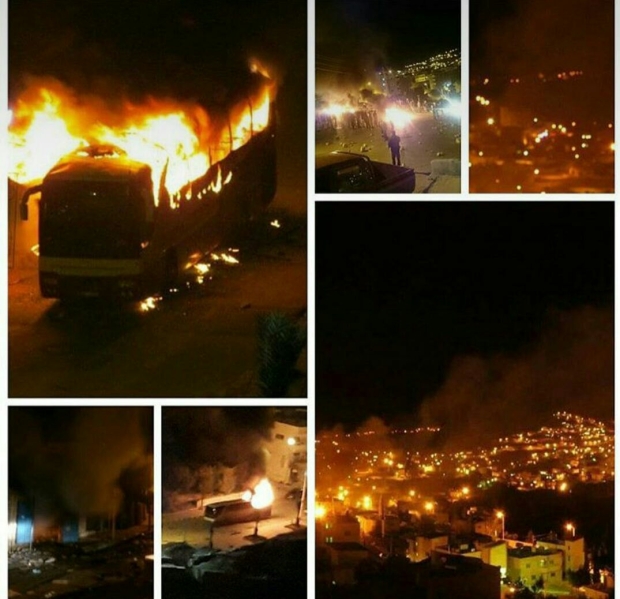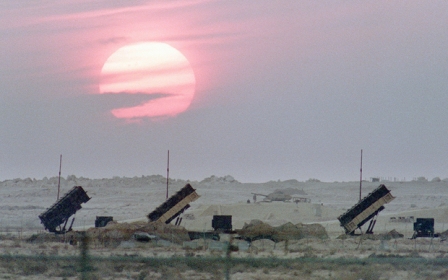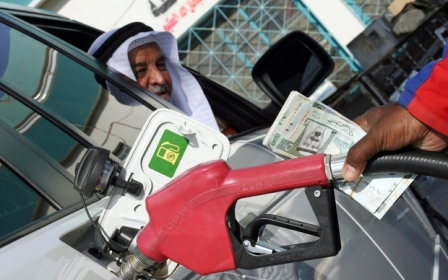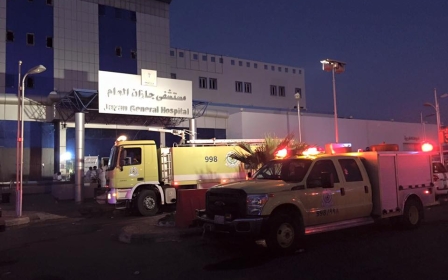Protests in Saudi Arabia's Qatif after Shia cleric's execution
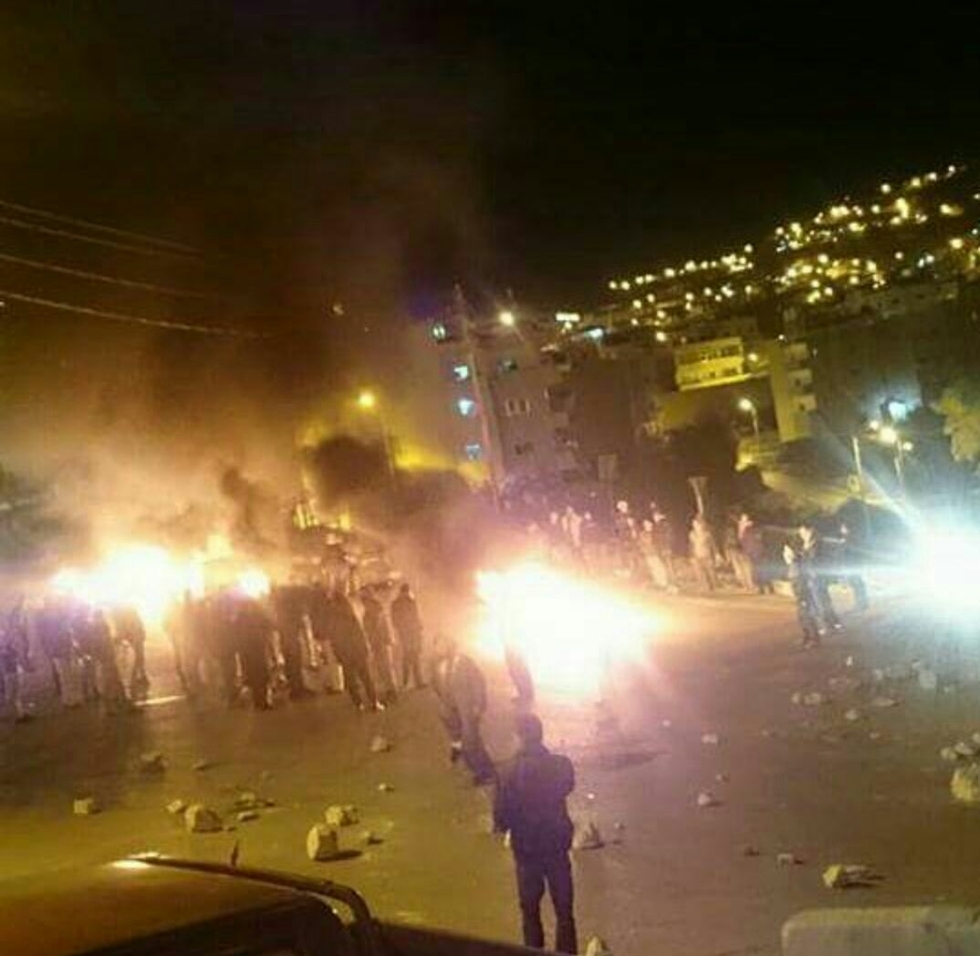
A large protest is reportedly planned on Saturday evening in the eastern Saudi area of Qatif after the execution of a top Shia cleric, local residents told Middle East Eye.
Protests on Saturday afternoon drew several hundred people out after the execution of Sheikh Nimr al-Nimr, a local resident, who asked to remain anonymous for safety reasons, told Middle East Eye. But the protests ended quickly, with Saudi security forces - including hundreds of armoured cars - maintaining a heavy presence.
Police forces circulated a statement to locals, instructing them to use weapons to repress any demonstration or expression in support Nimr, the resident said.
But hours later, as residents tell MEE they are preparing for the evening demonstration, photos are circulating, showing fires blazing in different areas of Qatif, including a bus engulfed in flames.
Protests were also held in Bahrain earlier on Saturday, just hours after 47 people convicted of "terrorism," including Nimr, were executed in 12 dfiferent cities in the kingdom.
Sheikh Nimr al-Nimr, 56, was a driving force of the protests that broke out in 2011 in the Sunni-ruled kingdom's Eastern Province, where residents complain of marginalisation.
The list does not include Nimr's nephew, Ali al-Nimr, who was 17 when he was arrested following the protests.
Nimr's execution came despite an apparent attempt by Iraq's top Shia Muslim cleric Grand Ayatollah Ali al-Sistani, who had been appealing to Saudi to swap Nimr for a Sunni political prisoner in Iraq, according to a senior sheikh in the Eastern Province area of Qatif.
"It looks [like] Saudi takes it as a challenge and [did] not respect the voice of the sheikh," the senior sheikh, who asked not to be named for security reasons, told MEE.
No details were released about the methods used in the executions, though Saudi executions are usually carried out by beheading with a sword.
The 47 were convicted of adopting "takfiri" ideology, joining "terrorist organisations" and implementing various "criminal plots," the statement said.
Reflection of growing pressure?
Most of those executed were Sunnis convicted of their involvement in al-Qaeda attacks that killed Saudis and foreigners in the kingdom between 2003 and 2006, the ministry said.
Fares al-Shuwail, whom Saudi media outlets have described as the top religious leader of al-Qaeda in Saudi Arabia, was one of those executed. He was arrested in August 2004.
Others on the list were Shia protesters arrested between 2011 and 2013 during demonstrations in which several police officers were killed.
One of the most vocal Shia leaders in eastern Saudi, Nimr was wildly popular among the kingdom's Shia community, who make up between 10 and 15 percent of Saudi's 28 million population.
He led anti-government protests that erupted in 2011, inspired by the Arab Spring, and made speeches calling for the downfall of the al-Saud monarchy and equality for the country's Shia community - but was careful to avoid calling for violence, analysts told Reuters.
His activity led to his arrest in June 2012 after being shot and wounded by police officers.
When Nimr was sentenced to death in October 2014, consecutive days of protests were held in the Eastern Province as well as warnings from around the region, including from Hezbollah and Iran, concerned that if the ruling was upheld it would provoke discord and violence.
At the time, analysts told MEE that Nimr's death sentence was likely a reflection of growing pressure felt by the Saudi monarchy, particularly from the kingdom's Sunnis who resented Saudi Arabia's participation in the US-led coalition against the Islamic State.
"There is quite a lot of resentment among Saudi groups that sympathise with ISIS [Islamic State]," Madawi al-Rasheed, visiting professor at the London School of Economics Middle East Centre, told MEE.
In combination with the recent rapprochement between Saudi Arabia and Iran and the kingdom's support of the 2013 ousting of the Muslim Brotherhood from the Egyptian presidency, the majority of Sunnis in Saudi "are a bit suspicious of the intentions of the Saudi regime," Rasheed said in October.
“Therefore a death sentence, which seems to be very harsh, on a Shia personality [Sheikh Nimr] – who is a controversial figure – comes at the right time for the Saudi regime in order to gain a semblance of being heavy-handed on all groups, Sunni and Shia, who threaten security.”
Increase in executions
Executions have increased in the kingdom since King Salman acceded to the throne in January 2015 following the death of king Abdullah.
The number of convicts executed on Saturday is more than half of those executed - 87 - under Salman's predecessor in the whole year of 2014.
In 2015, Saudi Arabia executed 153 people convicted of various crimes, including drug-trafficking.
Authorities in the kingdom set up specialised courts in 2011 to try dozens of Saudis and foreigners accused of belonging to al-Qaeda or of participating in the wave of attacks that swept the country from 2003.
Those shootings and bombings killed more than 150 Saudis and foreigners. The kingdom's then and continuing Crown Prince Mohammed bin Nayef oversaw a crackdown on the militants at the time.
But Nimr was arrested for completely different reasons in 2012.
The interior ministry at the time described him as an "instigator of sedition" as it announced his arrest in the Shia village of Awamiya in the east after he was wounded in the leg while putting up resistance.
Middle East Eye propose une couverture et une analyse indépendantes et incomparables du Moyen-Orient, de l’Afrique du Nord et d’autres régions du monde. Pour en savoir plus sur la reprise de ce contenu et les frais qui s’appliquent, veuillez remplir ce formulaire [en anglais]. Pour en savoir plus sur MEE, cliquez ici [en anglais].


